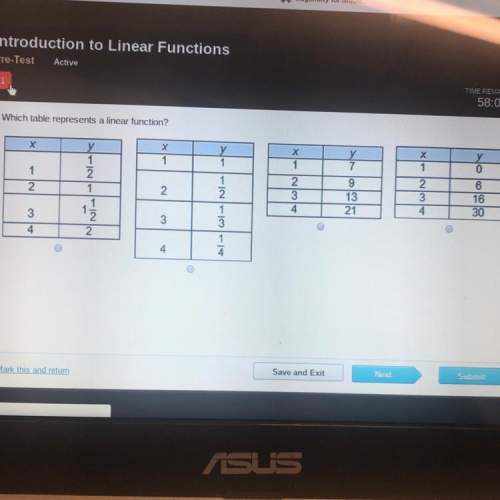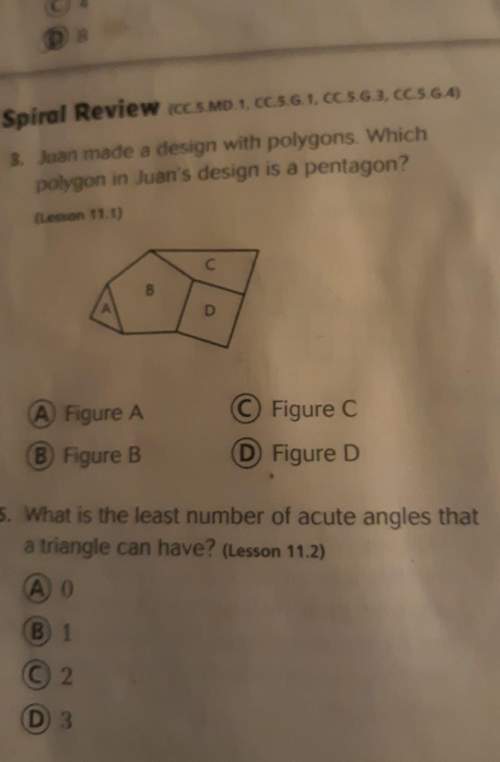
Mathematics, 29.09.2019 04:30 bnnnkyl22
The constant difference theorem states that iff (x)=g'(x) for all x on an interval, then f(x)=g (x)+k, for some real constant k. (0) show that if f(x)=g'(x) for all real x, and if fla)=g(a) for some real a, then f(x) for all real x. (ii) confirm the trigonometric identity sin'(x)+cos? (x) = 1, using the result from (i), treating the lhs as flx) and the rhs as g(x). (b) determine the continuity of the function below, giving any points where it is discontinuous. are these removable or non-removable points of discontinuity? explain carefully, using one sided limits, how you know that these points are either removable or non-removable discontinuities. x2-100 f(x)x10

Answers: 1


Another question on Mathematics

Mathematics, 21.06.2019 18:30
Haruka hiked several kilometers in the morning. she hiked only 66 kilometers in the afternoon, which was 25% less than she had hiked in the morning. how many kilometers did haruka hike in all?
Answers: 1



You know the right answer?
The constant difference theorem states that iff (x)=g'(x) for all x on an interval, then f(x)=g (x)+...
Questions





Computers and Technology, 21.10.2020 16:01










Mathematics, 21.10.2020 16:01



Mathematics, 21.10.2020 16:01






